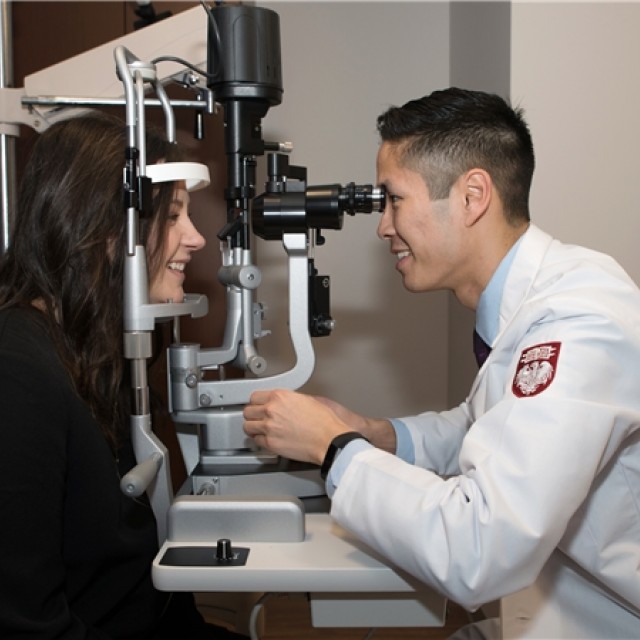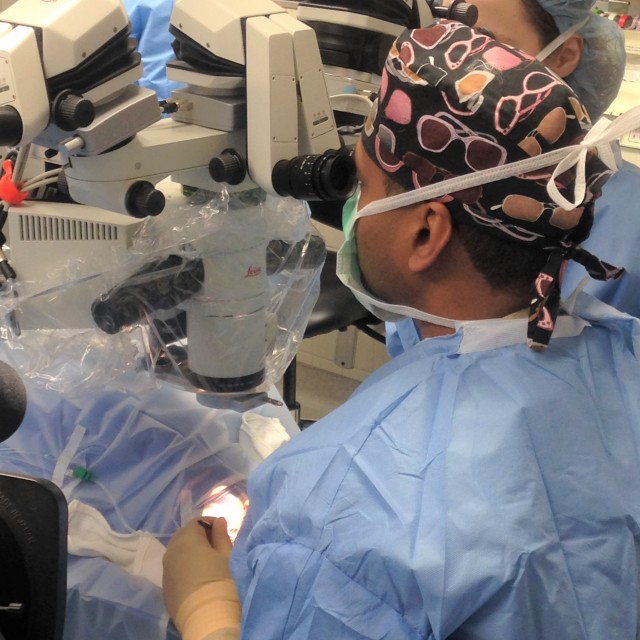
Co-Management
At the University of Chicago, every medical specialty is connected and works closely together to provide patients with a comprehensive medical service. Co-management splits the responsibility of care among different doctors to ensure the highest-quality of medicine. It allows doctors to specialize and concentrate their efforts in different fields. Co-management works well in our network because we have plenty of resources and a strong system in place to support all aspects of your care. All of our optometrists and ophthalmologists are highly-skilled and hand-picked for this type of medical co-management.
In most cases, patients should have both an optometrist and an ophthalmologist on their team to address all of their eyecare needs. Generally, the optometrist accepts new patients and acts as a primary care provider to guide patients to the best specialist or surgeon in the system when it is right for the patient. Whether it is a minor surgical procedure or a rare eye disorder, our ophthalmologist team covers a full range of services and offer the highest level of expertise for your condition.

Optometry
While optometrists are best known for prescribing glasses and contact lenses, they are primarily trained to diagnose and manage medical conditions of the eye because they support your well-being and increase access to the healthcare system. They see patients of all ages, in sickness or health, on a regular basis. This is a perfect opportunity to promote preventative medicine, especially in chronic conditions such as diabetes or hypertension, which can lead to blindness if undiagnosed or uncontrolled.
As primary care providers, optometrists build lifelong relationships with you, understand your unique health factors over time, and collaborate with your medical team to strengthen your community and make sure you are connected to specialists when needed.

Ophthalmology
In cases where you have advanced disease, complications, or may need surgery, ophthalmologists are the best solution. These doctors have extensive medical and surgical training. They typically specialize and perfect their skills within a specific area of the eye. For example, one type of ophthalmologist may study the front of the eye (cornea), while another may focus on eye muscle surgery.
Surgery
Cataract surgery is a great example of our teamwork and co-management system. Typically, you have an established relationship with an optometrist before you are ready for cataract surgery. When the time comes, the optometrist is best suited to explain the risks and benefits of surgery to fit your lifestyle and address your visual goals. He or she will refer you to one of our ophthalmologists to perform the best procedure for your needs. After the surgery is complete, the optometrist can resume your care and enhance your vision with corrective lenses (if needed) after you recover. Surgical co-management creates a smoother process from start to finish and takes advantage of our team-based model to maximize your potential.